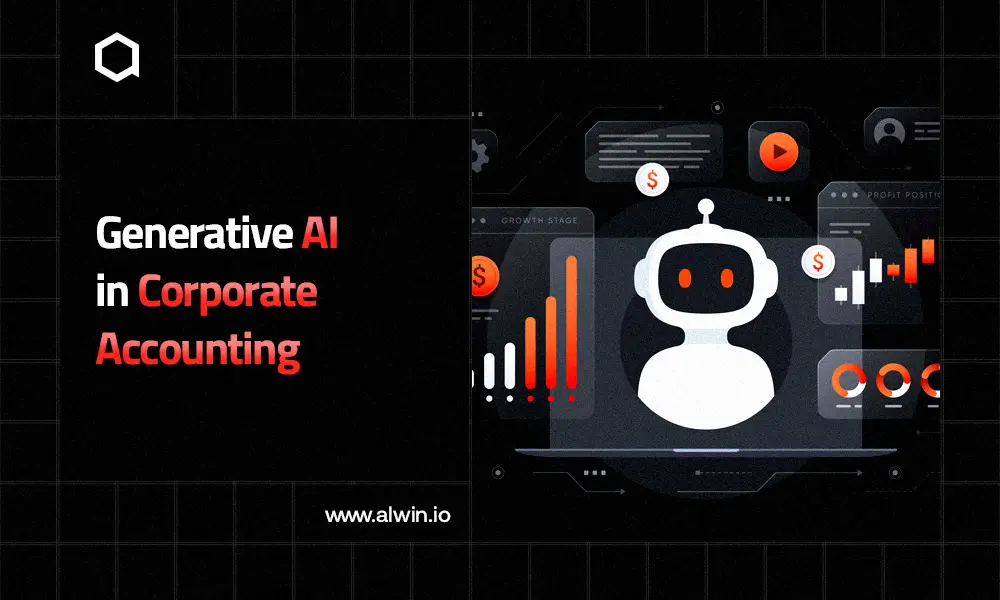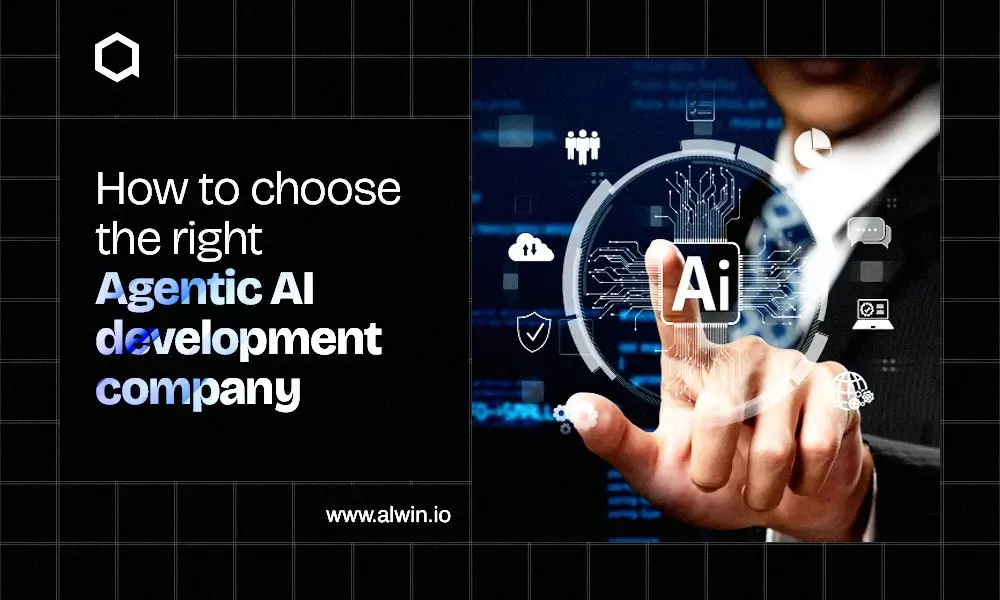Accounting has always been the backbone of business stability, but historically, it's been weighed down by repetitive tasks, complex regulations, and the constant pressure of precision. Over the years, automation and AI have slowly made their way into accounting departments, offering relief through data entry tools, digital ledgers, and rule-based software. However, a new chapter is being written with the arrival of generative AI in corporate accounting.
Unlike traditional automation, which simply follows instructions, generative AI brings a new level of intelligence to the table; it learns, understands, and generates human-like content and insights. From drafting financial reports and summarizing transactions to predicting trends and analyzing compliance risks, generative AI is poised to transform the way corporate finance functions. It doesn't just automate; it empowers accountants to shift from number crunching to strategic thinking.
As the pace of financial operations accelerates and the demand for real-time decision-making grows, generative AI is no longer a future concept; it's an essential tool for forward-thinking enterprises. This blog explores how it's changing the landscape and what it means for the future of corporate accounting.
What is Generative AI?
Generative AI is a type of artificial intelligence that doesn’t just process data; it creates something new from it. Unlike traditional automation tools that follow a fixed set of rules, generative AI uses complex algorithms and deep learning models to understand patterns, context, and intent. It can generate content, analyze scenarios, and even provide strategic recommendations, often in ways that feel remarkably human.
In the world of corporate accounting, this means generative AI can draft detailed financial summaries, simulate future budget scenarios, or automatically identify irregularities in reports, all with minimal human input. It brings a new level of adaptability and intelligence to finance teams, moving beyond basic automation to offer smart, contextual support.
Understanding the Role of Generative Ai in corporate accounting
Corporate accounting isn’t just about crunching numbers; it’s about accuracy, compliance, strategic insight, and managing massive volumes of financial data. Traditionally, accountants have spent countless hours manually preparing reports, reconciling transactions, and ensuring regulatory compliance. But with the rise of generative AI in corporate accounting, these processes are becoming faster, smarter, and more reliable.
Generative AI plays a powerful role by automating repetitive tasks and generating content that previously required human effort. Need a month-end financial report? It can draft it in seconds. Are you trying to predict the expenses for the upcoming quarter? AI can model different scenarios based on real-time data.
Here’s how it’s making a real difference:
Report Automation: AI can create accurate, formatted financial reports in minutes.
Forecasting: It can analyze trends and generate predictive models for budgeting and planning.
Compliance Support: AI tools can monitor regulatory changes and help ensure financial practices stay up to date.
Error Detection: It identifies anomalies in data that could indicate fraud or mistakes.
Decision Support: By generating insights from financial data, AI helps CFOs and finance teams make more informed choices.
Instead of replacing accountants, generative AI acts as an intelligent assistant, freeing up teams to focus on strategy, analysis, and business growth. It brings efficiency without compromising accuracy, making it a vital tool in the future of finance.
Why Does Corporate Accounting Need Generative AI?
Corporate accounting is the financial nerve centre of any organisation. Still, for all its importance, it’s often slowed down by routine tasks, high-pressure compliance demands, and a constant risk of human error. As companies grow and financial operations become more complex, these challenges only increase, making traditional accounting methods less sustainable.
Let’s take a closer look at the everyday struggles many corporate finance teams face:
Manual Data Entry: Accountants spend countless hours entering, reviewing, and validating financial data. It’s not only time-consuming but also leaves room for mistakes that can snowball into costly problems.
Human Error: Even the most skilled professionals can overlook a decimal point or misplace a figure. In accounting, even small errors can have big consequences impacting audits, reporting, and strategic decisions.
Time-Consuming Audits: Preparing for internal or external audits is often a stressful, resource-heavy process. Teams scramble to gather data, organize files, and verify records. all while trying to maintain daily operations.
Regulatory Pressure: Compliance rules are always evolving. From tax regulations to financial reporting standards, staying on top of legal requirements demands constant attention and updated knowledge.
This is where generative AI in corporate accounting becomes a game-changer.
By automating repetitive tasks and analyzing data at scale, generative AI helps finance teams work smarter, not harder. It can generate clean reports, reconcile entries in real time, and even interpret compliance updates with natural language explanations. More importantly, it reduces the risk of human error and speeds up time-intensive processes like audit preparation and forecasting.
With generative AI, accounting teams are no longer bogged down by the basics. Instead, they’re empowered to focus on deeper analysis, better financial strategies, and proactive business decisions.
Benefits of Generative AI for Enterprises
Reduced operational costs
Faster financial decision-making
Real-time insights with improved accuracy
Scalability across multi-national corporations
Enhanced compliance and fraud detection
Future Outlook: What’s Next for Generative AI in Corporate Accounting?
As businesses continue to adopt digital strategies, generative AI in corporate accounting is only scratching the surface of its potential. The future promises a far more integrated, intelligent, and autonomous financial ecosystem where AI doesn't just assist but begins to take a lead role in decision-making and operations.
One of the biggest shifts we’ll see is the integration of generative AI with other emerging technologies like blockchain, Robotic Process Automation (RPA), and Enterprise Resource Planning (ERP) systems. Imagine a scenario where blockchain ensures transparent, tamper-proof records, RPA handles the routine tasks like invoice approvals or payroll, and AI sits at the centre, analysing data from all systems and generating real-time insights. This fusion will make corporate finance not only smarter but also more secure and highly scalable.
We’re also heading toward a world of AI-powered CFO assistants – intelligent digital tools that can do everything from answering complex financial questions to simulating budgets and outcomes and preparing board-ready presentations. These assistants will act like second brains for finance leaders, allowing them to focus on strategy rather than spreadsheets.
Maybe the most exciting evolution is the shift toward autonomous finance functions. In this model, many routine decisions like reconciling accounts, flagging risks, or adjusting forecasts will be handled by AI systems automatically, with minimal human oversight. Finance departments will evolve from reactive roles to proactive business enablers, offering guidance rooted in real-time data and predictive intelligence.
In short, the future of corporate accounting won’t just be about keeping the books; it will be about unlocking insights, driving growth, and shaping the financial future of organizations with the help of smart, connected AI systems.
Redefining Corporate Accounting with Generative AI
The role of generative AI in corporate accounting is no longer just a vision of the future; it’s a reality that forward-thinking enterprises are already adopting. From automating endless reporting tasks to generating strategic financial insights, generative AI is changing how finance teams operate. It's not just improving efficiency; it's reshaping the role of accountants and finance leaders as key drivers of business growth.
However, the key to successful adoption lies in approaching it responsibly. Companies must implement generative AI with a clear roadmap, one that balances progress with compliance, automation with oversight, and speed with accuracy.
As a trusted generative AI development company, WeAlwin Technologies helps businesses integrate AI into their financial operations with confidence. Our team of AI experts and financial technologists creates intelligent solutions tailored to your company’s specific challenges, ensuring secure, scalable, and future-ready implementation.



